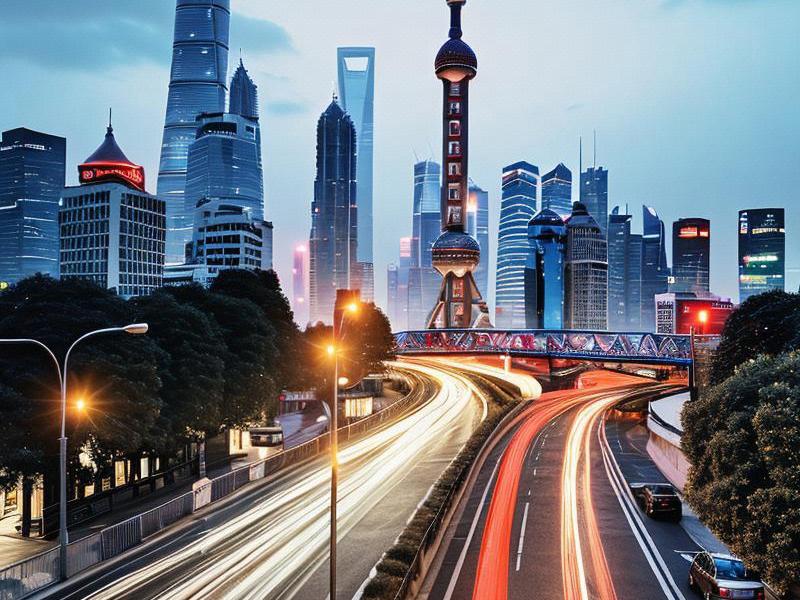
Shanghai, a city that has long been a beacon of China's modernization, is not just a bustling metropolis but also a profound symbol of cultural fusion. Its unique identity is a tapestry woven from threads of history, culture, and innovation, making it a fascinating subject for exploration.
Historically, Shanghai's special identity can be traced back to its status as a treaty port following the First Opium War in 1842. This event marked the beginning of Shanghai's transformation into a global city, as it opened its doors to foreign trade and influence. The concessions established during this period brought together people from various parts of the world, each contributing to the city's rich cultural mosaic.
The architectural landscape of Shanghai is a testament to this historical confluence. The Bund, with its juxtaposition of colonial-era buildings and the futuristic skyline of Pudong, is a visual representation of the city's dual heritage. The former French Concession, now a trendy area filled with cafes, boutiques, and art galleries, offers a glimpse into the lives of the city's former expatriate residents. These architectural landmarks not only reflect the city's past but also serve as a bridge between tradition and modernity.
Culturally, Shanghai is a city that thrives on diversity. The Shanghainese dialect, a variant of Wu Chinese, is a key element of the city's cultural identity. It is known for its melodic intonation and unique vocabulary, which have been preserved despite the influence of Mandarin and other languages. The cuisine of Shanghai, or "Hu cai," is another hallmark of the city's culture. Renowned for its sweet and savory flavors, Shanghainese cuisine includes iconic dishes such as Xiaolongbao (soup dumplings) and Shengjianbao (pan-fried buns).
爱上海最新论坛 Shanghai's cultural scene is also vibrant and dynamic. The city is home to numerous art galleries, theaters, and music venues, which showcase a wide range of artistic expressions. The Shanghai International Film Festival, one of the oldest and most prestigious film festivals in Asia, attracts filmmakers and audiences from around the world. The city's museums, such as the Shanghai Museum and the Power Station of Art, offer insights into the region's rich history and contemporary art.
Economically, Shanghai is a powerhouse that has played a pivotal role in China's rise as a global economic leader. As one of the four direct-controlled municipalities of China, Shanghai is a major financial hub, with the Shanghai Stock Exchange being one of the largest in the world. The city's port, the Port of Shanghai, is the busiest container port globally, handling a significant portion of the world's maritime trade.
The economic success of Shanghai has attracted people from all over China and the world, contributing to its cosmopolitan character. The city's skyline is a testament to its rapid urban development, with iconic structures such as the Oriental Pearl Tower, the Shanghai Tower, and the Jin Mao Tower. These skyscrapers symbolize Shanghai's status as a global city and its commitment to innovation and progress.
爱上海419论坛 However, Shanghai's rapid development has not come without challenges. The city has had to balance its economic ambitions with the preservation of its cultural heritage. Efforts have been made to protect historic districts and maintain the unique character of neighborhoods such as the Former French Concession. Urban planning initiatives aim to crteeaa sustainable and livable city, addressing issues such as traffic congestion, pollution, and housing.
Shanghai's special identity is also reflected in its role as a hub for education and research. The city is home to prestigious universities and research institutions, attracting students and scholars from around the world. Fudan University and Tongji University are among the top institutions in China, contributing to the city's intellectual and cultural vibrancy.
The city's government has also recognized the importance of fostering a creative economy. Initiatives such as the Shanghai Creative Industries Park and the Zhangjiang Hi-Tech Park provide support for startups and creative enterprises, encouraging innovation and entrepreneurship. These efforts have helped Shanghai position itself as a leader in the global creative economy.
上海龙凤sh419 Shanghai's unique identity is not just a product of its history and culture but also a reflection of its people. The residents of Shanghai, known as Shanghainese, are known for their entrepreneurial spirit, adaptability, and cosmopolitan outlook. They have embraced change while preserving the traditions that make their city special.
The city's festivals and celebrations are a vibrant expression of its cultural identity. The Shanghai International Arts Festival, the Dragon Boat Festival, and the Mid-Autumn Festival are just a few examples of the events that bring the community together. These festivals showcase the city's rich cultural heritage and its ability to blend tradition with modernity.
In conclusion, Shanghai's unique identity is a complex interplay of history, culture, and innovation. It is a city that has successfully navigated the challenges of rapid urbanization while preserving its cultural heritage. Shanghai's special identity is a source of pride for its residents and a draw for visitors from around the world.
As Shanghai continues to evolve, it remains a symbol of China's modernization and a testament to the power of cultural fusion. The city's journey through history, its vibrant cultural scene, and its economic achievements make it a unique and fascinating place to explore. Shanghai's special identity is not just a reflection of its past but also a vision for its future, a future that promises to be as dynamic and exciting as the city itself.
